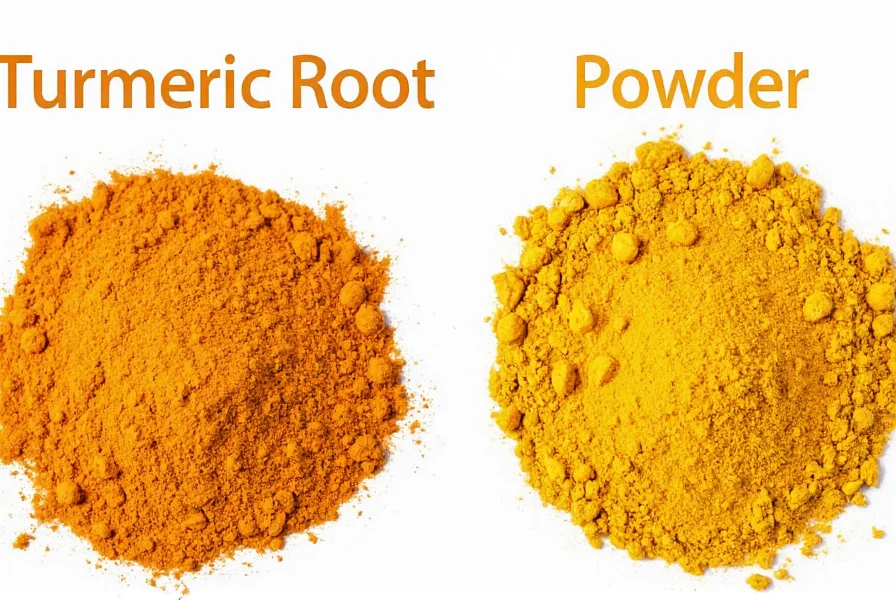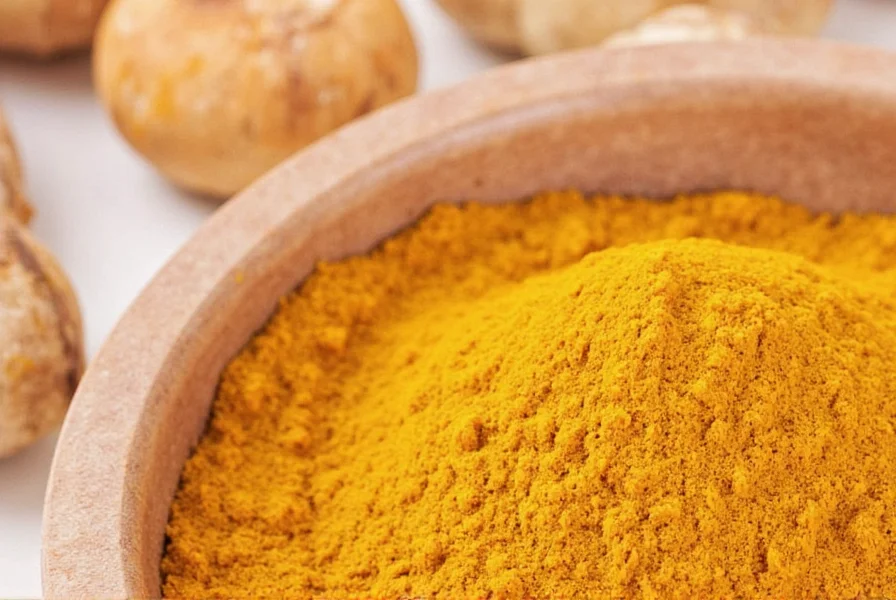Curcumin, the active compound in turmeric, has gained widespread popularity for its anti-inflammatory and antioxidant properties. But as with many natural compounds, more isn't always better. Understanding the safe limits of turmeric consumption is crucial for maximizing benefits while avoiding potential health risks.
Understanding Turmeric and Curcumin
Turmeric (Curcuma longa) is a bright yellow spice commonly used in Asian cuisine and traditional medicine. Its primary active component, curcumin, accounts for about 2-8% of turmeric by weight and is responsible for most of its health benefits. When evaluating how much turmeric is too much per day, it's important to distinguish between dietary turmeric and concentrated supplements.

Recommended Safe Dosages
The acceptable daily intake of turmeric depends on whether you're consuming it as a food spice or in supplement form:
| Form | Safe Daily Amount | Notes |
|---|---|---|
| Culinary turmeric (powder) | Up to 3 grams | Typically safe when used in cooking |
| Curcumin supplements | 500-2,000 mg | Standardized extracts for therapeutic use |
| Curcuminoids (total) | Up to 8,000 mg | Maximum studied dose before adverse effects |
The Joint FAO/WHO Expert Committee on Food Additives (JECFA) established an acceptable daily intake of 0-3 mg/kg of body weight for curcumin. For a 150-pound (68 kg) person, this translates to approximately 200 mg of curcumin daily.
Symptoms of Turmeric Overconsumption
Consuming excessive amounts of turmeric, particularly in supplement form, can lead to several adverse effects. The most common signs of turmeric overdose include:
- Nausea and gastrointestinal discomfort
- Diarrhea or other digestive issues
- Dizziness or headaches
- Skin rash in sensitive individuals
- Increased risk of bleeding (especially with blood thinners)
- Lowered blood sugar levels (concerning for diabetics)
A 2019 review published in Foods noted that doses exceeding 8,000 mg of curcumin daily resulted in noticeable side effects in clinical studies. Most adverse reactions occur with turmeric side effects dosage levels above 1,000-2,000 mg of curcumin taken multiple times daily.
Who Should Be Cautious with Turmeric?
Certain populations need to be particularly careful with turmeric consumption:
- People taking blood thinners: Turmeric may increase bleeding risk when combined with medications like warfarin
- Individuals with gallbladder issues: Turmeric may worsen gallstones or bile duct obstruction
- People with diabetes: Turmeric may lower blood sugar levels too much when combined with diabetes medications
- Those scheduled for surgery: Should discontinue high-dose turmeric 2 weeks before procedures due to bleeding risk
- Pregnant or breastfeeding women: Culinary amounts are safe, but high-dose supplements should be avoided
Turmeric in Food vs. Supplements: Critical Differences
One of the most important distinctions when considering can too much turmeric cause health problems is between dietary consumption and supplementation.
When used as a spice in cooking, turmeric is generally safe even at relatively high culinary doses. A typical curry might contain 1-3 grams of turmeric, which provides about 20-60 mg of curcumin. This level of consumption rarely causes issues.
Supplements, however, concentrate curcumin to levels impossible to achieve through diet alone. Many supplements provide 400-500 mg of curcumin per capsule, often with absorption enhancers like piperine that increase bioavailability by up to 2,000%. This dramatically changes the turmeric supplement safety guidelines compared to culinary use.
Long-Term Safety Considerations
While short-term use of turmeric supplements appears safe within recommended doses, less is known about very long-term consumption. Most clinical trials have examined turmeric use for periods of 4-12 weeks.
A 2020 review in Antioxidants noted that while turmeric shows promise for various health conditions, "the long-term safety profile of high-dose curcumin supplementation requires further investigation." The authors recommended periodic breaks from supplementation for those using turmeric long-term.
When to Consult a Healthcare Professional
Before starting high-dose turmeric supplementation, consult with a healthcare provider if you:
- Take prescription medications, especially blood thinners or diabetes drugs
- Have a history of kidney stones (turmeric contains oxalates)
- Have iron deficiency (curcumin may interfere with iron absorption)
- Are scheduled for surgery within the next two weeks
- Experience persistent digestive issues after turmeric consumption
Healthcare providers can help determine whether is turmeric safe in high doses for your specific health circumstances and medication regimen.
Practical Tips for Safe Turmeric Use
To maximize benefits while minimizing risks:
- Start with low doses and gradually increase to assess tolerance
- Choose supplements with third-party testing for quality and purity
- Take turmeric with black pepper (piperine) and healthy fats to enhance absorption
- Limit continuous high-dose supplementation to 8-12 weeks, then take a break
- Monitor for any adverse reactions, especially when first starting
- Consider cycling your supplementation (e.g., 5 days on, 2 days off)
Conclusion
While turmeric offers numerous potential health benefits, can you take too much turmeric is a valid concern, particularly with supplements. The evidence suggests that moderate culinary use is extremely safe, but high-dose supplementation requires caution. Staying within recommended dosage guidelines, being aware of potential interactions, and consulting with healthcare professionals when necessary will help you safely incorporate turmeric into your wellness routine.
Frequently Asked Questions
What are the first signs of consuming too much turmeric?
The earliest signs of excessive turmeric consumption typically include digestive issues like nausea, stomach upset, or diarrhea. Some people may experience dizziness or headaches. These symptoms usually appear when consuming more than 1,500-2,000 mg of curcumin daily, particularly in supplement form.
How much turmeric is safe to take daily?
For culinary use, up to 3 grams (about 1 teaspoon) of turmeric powder daily is generally safe. For curcumin supplements, research suggests 500-2,000 mg daily is effective and safe for most adults. The World Health Organization recommends no more than 3 mg of curcumin per kilogram of body weight daily (approximately 1.4 mg per pound).
Can turmeric supplements interact with medications?
Yes, turmeric supplements can interact with several medications. They may increase bleeding risk when taken with blood thinners like warfarin, enhance the effects of diabetes medications causing hypoglycemia, and potentially interfere with chemotherapy drugs. Always consult your healthcare provider before combining turmeric supplements with prescription medications.
Is it possible to overdose on turmeric from cooking?
It's highly unlikely to overdose on turmeric through normal culinary use. A typical curry contains 1-3 grams of turmeric, providing only 20-60 mg of curcumin. You would need to consume more than 15 grams of turmeric powder daily (over 5 teaspoons) to approach potentially problematic levels, which is far beyond normal cooking amounts.
How long does it take for turmeric side effects to go away?
Most mild turmeric side effects like digestive discomfort typically resolve within 24-48 hours after stopping consumption. Since curcumin has a relatively short half-life (6-8 hours), symptoms usually diminish quickly. If severe symptoms persist beyond 72 hours after discontinuing turmeric, consult a healthcare professional.











 浙公网安备
33010002000092号
浙公网安备
33010002000092号 浙B2-20120091-4
浙B2-20120091-4